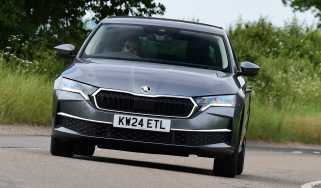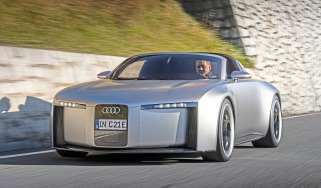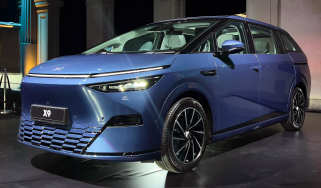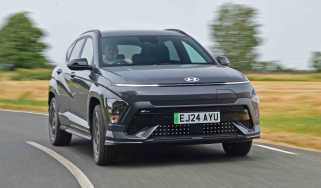Dieselgate: a decade on, has the VW emissions scandal killed diesel?
We take an in-depth look at the Volkswagen emissions scandal, and reveal what impact it had on the car industry
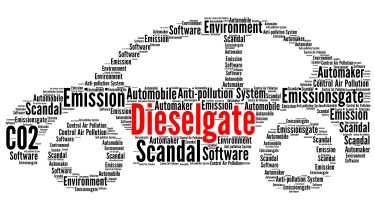
Seismic shifts are well underway in the automotive industry as consumers make the switch from legacy manufacturers to unknown start-ups and from internal combustion to fully electric powertrains.
All of this can be attributed to the ongoing push towards cleaner air and sustainability, although it can also be perceived as the fallout of what remains the biggest scandal in car history.
The Volkswagen emissions incident, also known as Dieselgate, might not have changed our overall trajectory in terms of electrification, but it certainly helped dig the grave for the usage of fossil fuels – particularly diesel – in passenger vehicles.
Yet to fully understand Dieselgate’s impact on not only the industry, but also the consumers buying them, we have to go back to the beginning to see what the whole issue stems from and why Volkswagen actively decided to deceive the public.
What is Dieselgate?
Dieselgate stems from a period between 2008 and 2015 during which the Volkswagen was intentionally fitting its cars with technology to dupe emissions tests.
Nick Molden, the founder and CEO of Emissions Analytics, told Auto Express: “Diesels in their natural state produce carcinogens and respiratory pollutants which are really bad for human health, but they can be completely controlled if you utilise the right technology.”
As part of the Euro 5 emissions standard that was introduced in 2009 and became mandatory in 2011, diesel vehicles were required to emit no more than 0.18g/km of nitrogen oxide (NOx) and come equipped with a diesel particulate filter (DPF). As part of Euro 6, first brought in in 2014 and made mandatory the following year, NOx levels had to be as low as 0.06g/km.
Volkswagen designed its so-called “lean NOx trap” tech as a cost-effective method of treating noxious gases from the engine. However, this came at the expense of fuel economy, so to keep cars competitive from a consumer standpoint – that is cheap to buy and run – engineers instead secretly programmed the car’s ECU to prioritise MPG over purification, thus meaning NOx emissions were much higher than they should be.
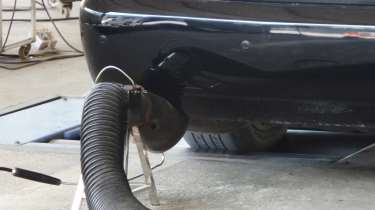
Using so-called ‘defeat devices’, however, VW could essentially alter a model’s performance during official emissions testing, sacrificing power output and fuel efficiency in order to temporarily reduce levels of harmful pollutants.
Defeat devices automatically activate when they detect the car is being tested for emissions; the internal computer recognises things such as steering position, speed and barometric pressure. After which they switch off for the remainder of the vehicle’s life, resulting in tailpipe pollution of anything from 10 to 40 times the legal limit.
It’s worth pointing out that it’s not just VW that was using this kind of technology; Mercedes is still arguing in the courts as to whether it employed defeat devices up to 2018, while Vauxhall, BMW, Fiat, Renault and Toyota have also been under the spotlight for this issue.
Which cars were affected by Dieselgate?
While Dieselgate is often associated with the Volkswagen Group, the scope of the scandal is much wider. According to a Freedom of Information request by climate-awareness group, ClientEarth, the UK Department for Transport is currently investigating 47 models across 20 different brands offered between 2009 and 2019 for utilising defeat-device technology. However, some research suggests that the actual number of models affected could be as high as 200.
In a statement, the DfT told Auto Express: “Defeat devices are illegal, misleading for drivers and can have negative health impacts on the public. We routinely and robustly check vehicles against emission standards and have acted quickly to set up an investigation on this matter. We will work with the industry to resolve any issues identified.”
Can I still claim for Dieselgate?
You probably remember all of the adverts on television and social media surrounding diesel emissions-scandal compensation. Unfortunately, however, the deadlines for most manufacturers have since ended. The likes of Mercedes, Ford and Nissan are still fighting in the courts, though, so owners of those vehicles may be in-line for payouts if the judges rule in favour of consumers.
How has Dieselgate impacted the car industry?
Retrospectively it’s clear to see that Dieselgate had a profound impact on the world’s car industry. While defeat devices were fundamentally designed to save manufacturers cash, the whole scandal ended up costing the automotive sector billions; Volkswagen alone suffered as much as $33billion in fines.
Such a significant financial blow to the sector meant manufacturers were left scratching their heads about how to reduce production overheads and thus save cash. Nothard illustrated what he described as the industry’s “iPhoneification” in the sense that it began simplifying and streamlining its model range to cut unnecessary costs.
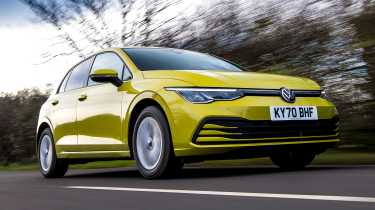
“Dieselgate saw manufacturers not only take a look at and clean up their fuel types, but also their model line-ups,” Nothard explained. “Limiting certain specs to certain models made manufacturing a lot more efficient, made consumer engagement a lot easier and made the remarketing space a lot more efficient as well.”
Dieselgate can also be credited with accelerating the implementation of the Worldwide Harmonised Light Vehicles Test Procedure (WLTP) cycle, which is used to quote vehicle economy and emissions figures.
There is, of course, a much darker ramification of the dieselgate scandal. Studies suggest that high NOx levels emitted by vehicles of various manufacturers utilising defeat devices resulted in the deaths of 16,000 people in the UK. That’s not all, because it’s also estimated that a further 6,000 people could suffer an early death due to the respiratory problems exposure to such emissions causes.
Speaking to Auto Express, a Volkswagen spokesperson said: “Looking back, Dieselgate represents a real turning point in the company's history: a new level of corporate integrity, governance and compliance. To date, tens of thousands of employees have undergone training to align their practices with these new standards.
“It is the responsibility of all managers at all hierarchical levels and employees in all areas of the Volkswagen Group to ensure that such a situation does not occur again.”
How has Dieselgate impacted consumer confidence?
With Dieselgate having significantly transformed the automotive world, it would seem reasonable to expect it to have equally altered the perspective of the car-buying public. However, the effect on consumers might not be as profound by comparison.
A survey of more than 1,000 motorists commissioned by Auto Express and run by our sibling publication, Carwow, found that while 43 per cent of respondents said the scandal affected their personal trust within the industry, a slightly larger proportion (47 per cent) replied that it didn’t really impact their views at all.
Furthermore, of those that said they do now hold a lesser view of the industry, fewer than half (43 per cent) said this would impact their choice of whether to buy a diesel car or not, suggesting that it’s more a lack of choice and/or encroaching governmental restrictions that are pushing us away from the black pump.
Nevertheless, the findings show that there was still significant damage to not just that of car manufacturers’ reputations, but of diesel powertrains altogether – if not quite as all-encapsulating as one might have initially thought. Molden said “Dieselgate fundamentally tarnished a technology which today is extremely clean. Quite likely if you buy a diesel car today, it would be cleaner than an equivalent petrol car, because the nitrogen-oxide treatment systems on diesels today are so good.”
Yet, with Volkswagen remaining the largest automotive manufacturer in Europe and displaying financial growth as recent as the final quarter of 2024, the German brand has managed to maintain its customer base despite being at the heart of the scandal.
“While it generally had an immediate impact,” said Nothard, “the recovery shows the strength of the brands involved.”
Did you know you can sell your car through Auto Express? We’ll help you get a great price and find a great deal on a new car, too.




